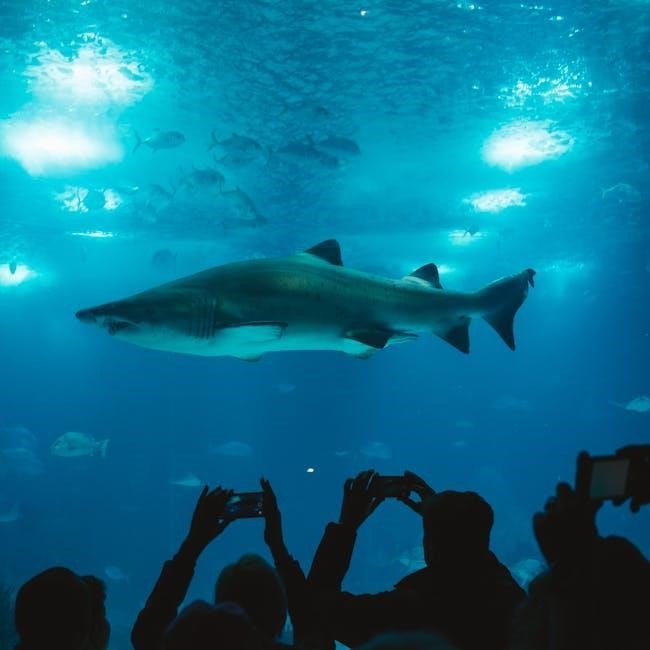
The 2024 New Jersey Saltwater Regulations aim to promote sustainable fishing practices and conserve marine resources. These rules, managed by the NJ Department of Environmental Protection, ensure responsible fishing and benefit future generations.
Overview of the 2024 NJ Saltwater Fishing Regulations
The 2024 New Jersey Saltwater Fishing Regulations outline essential guidelines for recreational and commercial fishing in the state’s marine waters. Managed by the NJ Department of Environmental Protection, these rules aim to balance sustainable fishing practices with conservation efforts. Key components include season dates, minimum size limits, possession limits, and licensing requirements. The regulations also highlight the importance of the New Jersey Saltwater Recreational Registry Program, which exempts anglers from federal fees. Specific species, such as striped bass, summer flounder, and black sea bass, have detailed restrictions to ensure healthy fish populations. Anglers are encouraged to familiarize themselves with these rules to avoid violations and support marine resource management. Compliance with these regulations helps preserve New Jersey’s marine ecosystem for future generations.
Importance of Adhering to the Regulations
Adhering to the 2024 NJ Saltwater Fishing Regulations is crucial for maintaining healthy marine ecosystems and ensuring sustainable fishing practices. These rules help conserve fish populations, protect habitats, and prevent overfishing. Compliance also supports the long-term availability of marine resources for future generations. Violations can result in penalties, fines, and harm to the environment. By following size limits, season dates, and possession restrictions, anglers contribute to the balance of marine life. Additionally, registering with the NJ Saltwater Recreational Registry Program is essential for tracking fishing activities and managing resources effectively. Responsible fishing practices not only preserve biodiversity but also safeguard the recreational and commercial fishing industries. Understanding and respecting these regulations is a shared responsibility among all anglers.
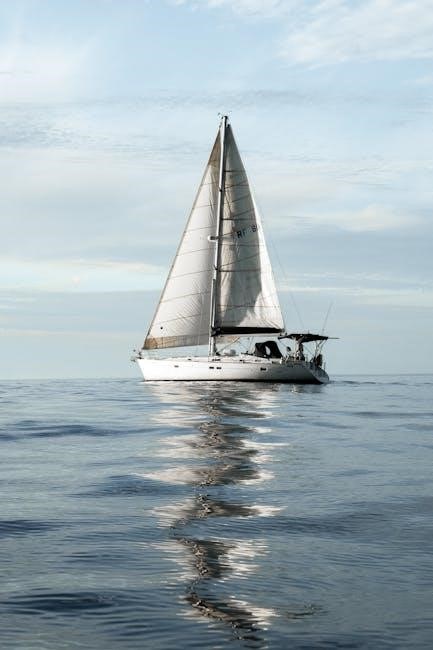
Key Components of the 2024 Regulations
The 2024 NJ Saltwater Regulations outline key components such as recreational fishing seasons, minimum size and possession limits, permits, licensing requirements, and species-specific rules for anglers.
Recreational Fishing Seasons
The 2024 NJ Saltwater Regulations establish specific recreational fishing seasons to ensure sustainable fishing practices. For Black Sea Bass, the season runs from May 17 to June 19, with a minimum size of 12.5 inches and a bag limit of 10 fish per person. Summer Flounder (Fluke) has varying regulations depending on location: 3 fish at 18 inches in most marine waters, 3 fish at 17 inches in Delaware Bay, and 2 fish at 16 inches at Island Beach State Park. Striped Bass fishing is open year-round, but the Striped Bass Bonus Program allows anglers to harvest one fish between 24 and 28 inches from May 15 to December 31. Blowfish have no closed season, while River Herring fishing is prohibited. These seasonal adjustments aim to balance recreational opportunities with conservation goals.
The regulations emphasize the importance of adhering to these limits to maintain healthy fish populations and ensure long-term sustainability for New Jersey’s marine resources.
Minimum Size and Possession Limits
The 2024 NJ Saltwater Regulations outline specific minimum size and possession limits to ensure the sustainability of marine species. Striped Bass must be at least 28 inches in total length, with a daily possession limit of one fish for recreational anglers. Summer Flounder (Fluke) have varying minimum sizes: 18 inches in most marine waters, 17 inches in Delaware Bay, and 16 inches at Island Beach State Park, with a daily limit of 2-3 fish depending on location. Black Sea Bass have a 12.5-inch minimum size and a possession limit of 10 fish per person. Additionally, no species with a minimum size limit may be filleted or cleaned at sea, except for party/charter boats with proper permits. These limits are enforced to protect fish populations and maintain a healthy marine ecosystem for future generations.
Adhering to these limits is crucial for conservation efforts and ensures fair access to resources for all anglers.
Permits and Licensing Requirements
Recreational saltwater anglers in New Jersey must comply with specific permit and licensing requirements. The New Jersey Saltwater Recreational Registry Program is mandatory for all anglers fishing in marine and tidal waters, exempting them from federal registration. Additionally, a Shellfish License is required for harvesting shellfish such as hard clams and oysters. Party or charter boats carrying 15 or more passengers must obtain a federal permit and ensure their operators hold valid U.S. Coast Guard credentials. These requirements help manage fishery resources sustainably and ensure compliance with state and federal regulations. Anglers must carry their licenses and permits while fishing and produce them upon request by enforcement officers.
Failure to comply may result in penalties, highlighting the importance of proper documentation.
Specific Fish Species Regulations

The 2024 regulations detail specific rules for popular species. Striped Bass have a 28-inch minimum size with a slot limit, while Summer Flounder (Fluke) vary by location, and Black Sea Bass require precise measurements.

Striped Bass Regulations
For Striped Bass, the 2024 regulations establish a slot limit of 28 to 31 inches for recreational fishing, with a daily limit of one fish per angler. The Striped Bass Bonus Program allows participants to harvest an additional fish between 24 and 28 inches with a valid permit. Fishing is prohibited in closed waters, and the use of nets is strictly banned. Anglers must use non-offset circle hooks when fishing with bait to reduce bycatch. Gaffing striped bass is illegal, and sale of the species is prohibited in New Jersey. These measures aim to conserve striped bass populations while ensuring sustainable fishing opportunities for anglers. For more details, refer to the NJ Saltwater Fishing Regulations PDF.
Summer Flounder (Fluke) Regulations
The 2024 Summer Flounder (Fluke) regulations in New Jersey vary by location. In most marine waters, the minimum size limit is 18 inches, with a daily possession limit of three fish per person. However, in Delaware Bay and its tributaries, the minimum size is 17 inches, while at Island Beach State Park, shore-based fishing allows two fish at 16 inches. Filleting at sea is prohibited unless aboard a permitted party/charter boat. Anglers may fillet one legal-sized fluke for bait, but the carcass must remain intact for size verification. These regulations aim to ensure sustainable fluke populations while providing anglers with fair fishing opportunities. For specific details, consult the 2024 NJ Saltwater Fishing Regulations PDF.

Black Sea Bass Regulations
The 2024 Black Sea Bass regulations in New Jersey include a minimum size limit of 12.5 inches, with a possession limit of 10 fish per person. For anglers fishing from a party or charter boat, the limit is reduced to 5 fish per person. The season for Black Sea Bass runs from May 17 to June 19. Filleting at sea is prohibited unless aboard a permitted party/charter boat. Measurements are taken along the midline from the snout to the end of the central portion of the tail, excluding the tail filament. These regulations are designed to help maintain a healthy Black Sea Bass population while providing anglers with opportunities to enjoy this popular species. For full details, refer to the 2024 NJ Saltwater Fishing Regulations PDF.
New Jersey Saltwater Recreational Registry Program
The New Jersey Saltwater Recreational Registry Program exempts anglers from federal registry fees. It requires registration for saltwater fishing in state waters, aiding conservation efforts and ensuring compliance with regulations. For more details, visit the NJ Saltwater Registry website or refer to the 2024 NJ Saltwater Fishing Regulations PDF.
Registry Requirements
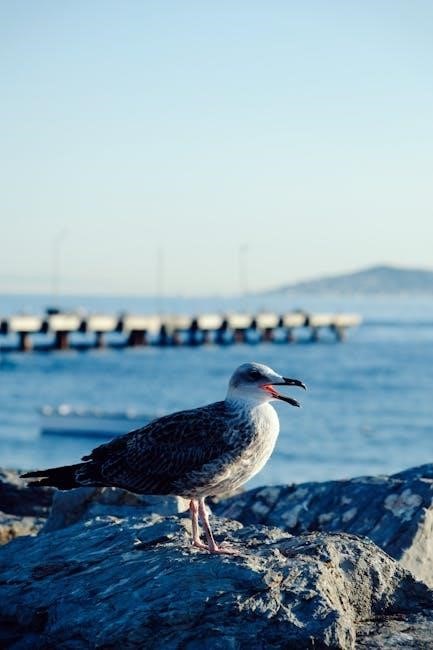
All anglers 16 years or older engaging in saltwater fishing in New Jersey must register with the New Jersey Saltwater Recreational Registry Program. This includes both residents and non-residents. Registration is required for fishing in marine and tidal waters, regardless of the fishing method; Exemptions apply to those fishing on licensed party or charter boats; The program aims to collect data on fishing activities to better manage marine resources. Registrants must provide basic personal information and details about their fishing gear. The registry is free and can be completed online through the NJ Saltwater Registry website. It is mandatory for compliance with state and federal fishing regulations. For more information, refer to the 2024 NJ Saltwater Fishing Regulations PDF.

Benefits of the Registry Program
The New Jersey Saltwater Recreational Registry Program provides numerous benefits for anglers and marine conservation efforts. By collecting data on fishing activities, the program helps manage fish populations sustainably and ensures the long-term health of marine ecosystems. It also exempts recreational anglers from the federal registry fee, making saltwater fishing more accessible. Additionally, the registry supports enforcement of fishing regulations, helping to prevent overfishing and protect vulnerable species. Anglers benefit from a streamlined process that simplifies compliance with state and federal rules. Overall, the program plays a critical role in balancing recreational fishing opportunities with environmental stewardship, ensuring New Jersey’s marine resources remain thriving for future generations.
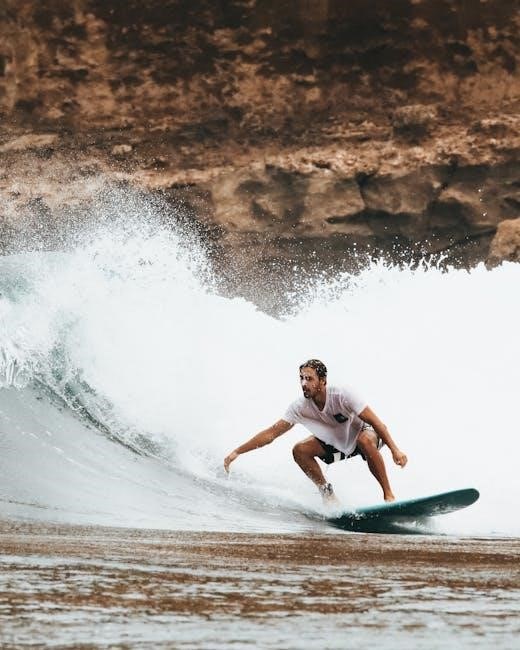
Enforcement and Penalties
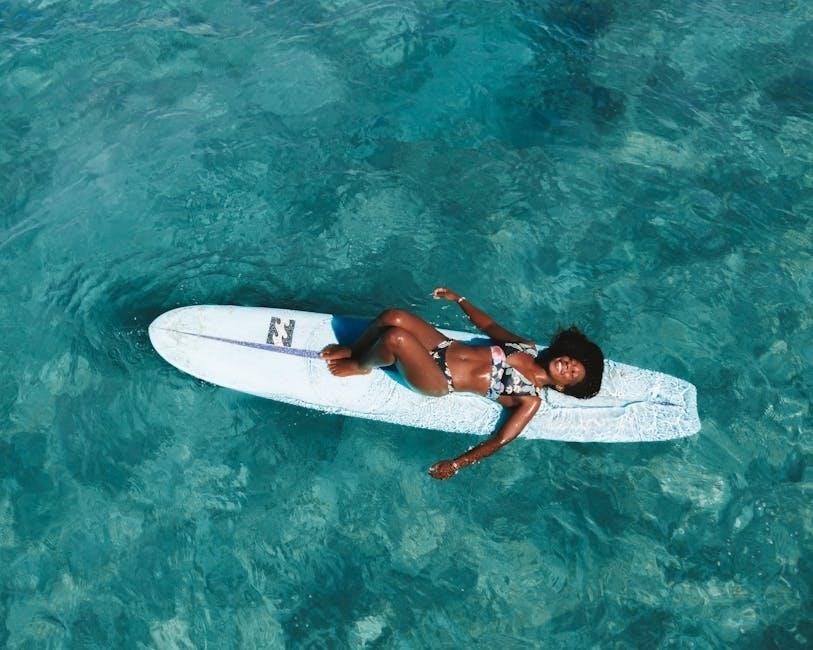
The NJ Department of Environmental Protection rigorously enforces saltwater fishing regulations through patrols and inspections. Violations result in fines, license suspensions, and gear confiscation to ensure compliance.
How Regulations Are Enforced
The New Jersey Department of Environmental Protection (NJDEP) enforces saltwater fishing regulations through a combination of patrols, inspections, and education. Marine conservation officers conduct regular checks of fishing gear, permits, and catches to ensure compliance with size limits, bag limits, and seasonal restrictions. Vessels are monitored for proper licensing and adherence to gear restrictions, such as the use of non-offset circle hooks when bait fishing. Additionally, the NJDEP collaborates with federal agencies to enforce regulations in federal waters. Inspections occur at docks, piers, and aboard fishing vessels, both in state and federal waters. Failure to comply may result in penalties, including fines, confiscation of gear, and suspension of fishing privileges.
Consequences of Violations
Violating New Jersey’s saltwater fishing regulations can result in significant penalties, including fines, confiscation of fishing gear, and suspension or revocation of fishing licenses. Fines range from $100 to $500 for minor offenses, with higher penalties for more serious violations, such as exceeding catch limits or using illegal gear. Repeat offenses may lead to increased fines and mandatory appearances in court. In severe cases, such as intentional overfishing or harassment of enforcement officers, violations may result in criminal charges. The NJDEP emphasizes that compliance is crucial to maintaining sustainable fish populations and ensuring fair access for all anglers. Failure to adhere to regulations undermines conservation efforts and can harm the state’s marine ecosystems.
How to Obtain the 2024 NJ Saltwater Regulations PDF
Visit the NJ Fish & Wildlife website, download the 2024 PDF, or scan the provided QR code for quick access to the regulations.
Step-by-Step Guide to Downloading the PDF
To access the 2024 NJ Saltwater Regulations PDF, visit the official NJ Fish & Wildlife website. Navigate to the marine regulations section and click on the provided link. Select the 2024 saltwater regulations option, then download the PDF. Alternatively, scan the QR code available on the website for direct access. Once downloaded, save the document for easy reference. Printing is optional for those who prefer a physical copy. Ensure you review the guide thoroughly to stay informed about all updates and changes for the 2024 fishing season. This resource is essential for understanding size limits, seasons, and licensing requirements.
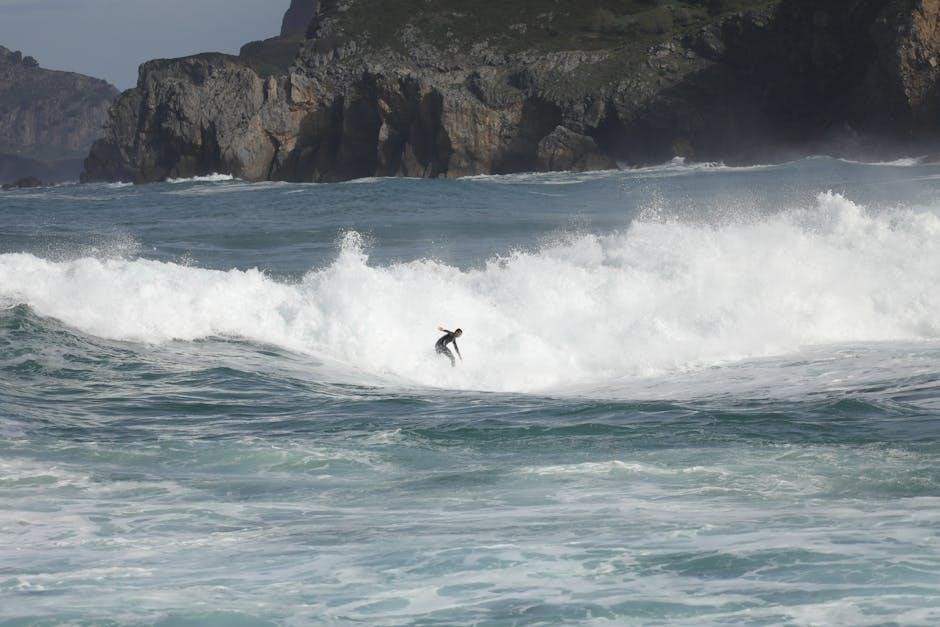
Future Outlook and Potential Changes
The future of New Jersey saltwater regulations may see adjustments based on ongoing conservation efforts and environmental changes. Fishery managers will continue monitoring fish populations to ensure sustainability. Potential changes could include modifications to size limits, bag limits, or season dates for species like black sea bass or summer flounder. The NJ Department of Environmental Protection may also explore new permitting requirements or enhanced enforcement measures. Public feedback and scientific research will play a crucial role in shaping these updates. Anglers are encouraged to stay informed through the NJ Fish & Wildlife website and participate in public forums to contribute to the decision-making process. Adaptability will be key to maintaining healthy marine ecosystems for future generations.
The 2024 New Jersey Saltwater Regulations are designed to ensure the long-term sustainability of marine resources while providing anglers with opportunities to enjoy saltwater fishing. By adhering to these rules, anglers play a vital role in conservation efforts. Key components include season dates, size limits, and permits, all aimed at protecting fish populations and habitats. The NJ Saltwater Recreational Registry Program simplifies compliance for anglers, while enforcement measures ensure fair access for all. For the latest updates, anglers should regularly check the NJ Fish & Wildlife website or download the 2024 regulations PDF. By following these guidelines, anglers can help preserve New Jersey’s marine ecosystems for future generations to enjoy. Responsible fishing practices are essential for maintaining healthy and abundant fish populations.